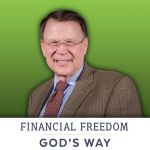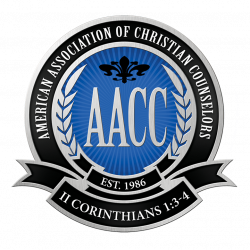

Seminar: “Stewardship” 1 of 4
Q&A: “Retirement”
Minute with Maxwell: “Execute”
(Unedited Transcript)
INTRODUCTION
Attention
Welcome to Financial Freedom God’s Way radio where you begin to learn, apply, and pass on, Bible-based financial principles and applications so that you and your family will not only just survive, but thrive during these very uncertain times.
Overview
Hi and welcome everyone, this is Bob Louder from Christian Financial Ministries, and it is an absolute honor to have you with us—it really is.
- Today,
- first, you are going to discover the second of the two most important financial principles in all of the Bible.
- Then, did you ever wonder if retirement is scriptural? We’ll talk about that during our Q&A time.
- We’ll spend another great “Minute With Maxwell”
Motivation
This is going to be a great 30 minutes together, again, we’re so glad you are joining us. Now, as we start, please join me for a word of prayer. Father, thank You for meeting with us again today. Please give us ears to hear all that it is you have planned for us, to Your glory, in Jesus’ mighty name, amen.
BODY
Radio Seminar
During our last Radio Seminar time together the Lord showed us that the first of the two most important financial principles in all of His Word—in all of the Bible—is the principle of wealth.
- The point from last time was that if you want to move to spiritually higher ground in your finances, you must first begin to see through spiritual eyes what you have so long only considered only through worldly eyes. You need to understand and apply the key, biblical financial principle of wealth.
- Remember, Wealth according to God’s definition—remember what it is? It consists of more than just the material things you may possess…it also includes things like your friends, your family, your health; it includes everything God has ever placed into your spiritual trust account. And remember, it’s more, it is so much more than just dollars and cents.
- And what’s important to God about all that you have been given? Not the amount or the value, but your attitude. To God, what is important is not how much you have but your attitude about whatever it is you’ve been given.
- And what’s the attitude God wants you to have? I mean, if your attitude is so very, very important to God, and it is, well, what’s the attitude God wants you to have? It’s the attitude of a steward…and stewardship is the second of the two most important financial principles in all of God’s Word.
Today we’re going to take our first look at the principle of stewardship. We’ll define it and see what it looks like, and along the way we’ll see that it’s a whole lot more than just giving the tithe and contributing to the building fund.
Are you ready? Listen up and let’s get started.
What is stewardship?
- First of all, the Bible says that stewardship begins by acknowledging God as the true owner of everything.
- The Psalmist puts it this way, “The earth is the LORD’s, and everything in it, the world, and all who live in ” Remember that the entire world and everything in it is His by right of creation. He is the owner. You and I, we don’t own a thing. The sum of our wealth according to God’s definition is simply the sum of all that God has given us to manage (again, your time, talents, abilities, skills, and all). God owns. You manage.
- So what is a steward? Here’s a great definition: A steward is simply a manager of another person’s property. Let me give you that definition again: According to the Bible, a steward is a manager of another person’s property.
So, that’s what stewardship is, but just exactly what does stewardship look like?
- Well, examples of stewardship, of stewards in our world today could include folks like bankers, guardians, teachers andparents, I could go on but I think you get the idea.
- The banker is probably the best example, because bankers don’t own the money they They manage it.
- Now, stewards, including bankers, have some rights and some restrictions.
- For example, stewards have the right to put to good use the wealth they manage.
- And stewards often have the right to keep some of what they manage for their own use.
- However, stewards also have some
- For example, stewards are accountable to the owner.
- The fact is that the owner can take back wealth from the manager if the manager doesn’t follow the owner’s
So, that’s what stewardship is and what it looks like, now let’s see what Jesus has to say about stewardship in Luke 12:16-20—the parable of the foolish farmer.
- Jesus started out this parable by saying, “The ground of a certain rich man produced a good crop.”
- Please note a couple of important things First, Jesus doesn’t condemn the rich man, nor does He condemn the wealth—in this case the good crop.
- Remember,
- your wealth is not good or bad.
- Your wealth is not moral or immoral.
- Your wealth is not pleasing or displeasing to God.
- It is your attitude about your wealth and how you use it that is either pleasing or displeasing to
- Now, if attitude is important, and it is, let’s check out the attitude of this rich man when he sees the great crop come He says in Luke 12:16-20, the rich man says
- “This is what I’ll I will tear down my barns and build bigger ones, and there I will store all my grain and my goods. And I’ll say to myself…”
- Do you see his attitude? Did he see himself as the owner or the manager? Sure, he considered himself the owner. When that large crop came in he didn’t consider himself a steward and ask, “God, why did You entrust all this to me and what do You want me to do with this great harvest?” No, he considered himself the owner and planned to store it ALL away for his own use without asking God. He took the position of owner and was condemned by
- This parable has huge implications for you today,
- because you are “rich” when you consider your wealth from God’s You have “good crops” come in (your education, jobs, family, time, and all).
- But do you treat God as the owner and ask Him how to use all that He gives you to manage? Or do you try to act the part of the owner and plan to hide it away in your “barn”? You may or may not have an actual barn; you do have things like checking accounts, savings accounts, homes, cars, clothing, and jewelry and If you choose to be a steward, God blesses. If you choose to try out the position of owner, God condemns.
Remember, the secret of stewardship is attitude. You must have the attitude of a manager. Leave the ownership where it belongs—and that’s with God.
That wraps our Radio Seminar time for today.
- Recall we just discovered the second of the two most important financial principles in all of God’s Word—the Principle of Stewardship.
- Do you see how the principle of stewardship links tightly to the first of the Bible’s two most important financial principles?
- The principle of wealth says that God owns it all—he is the owner.
- He is the owner, we are the stewards, we are the managers of all that belongs to God.
- Next time, we’re going to dig a bit deeper into the principle of stewardship…it’s going to be great so don’t miss it.
Q&As
Let’s talk about retirement…so many of us are retired and a whole lot of us can’t wait to be retired.
- Here’s a great question:
- I’m in my early thirties, married, and have two children. So I guess I’m one of the average Americans. My company allows me to invest five percent of my salary in a retirement plan, and it matches the funds. I know it’s a good deal, and we can afford it, but is retirement spiritual? If not, how did we get so caught up in it?
- Now, there is a question that I’m sure really hits home to a lot of folks today.
- But what kind of response would you give to that question? Is retirement scriptural?
- Well, to start with, there is only one reference tor retirement in the Bible: that would be in the Old Testament Book of Numbers. Numbers 8:25 says that the priests of the tent of meeting (later call the Temple) those priests should retire from that work at 50 years old.
- So, apparently retirement was not common to God’s people anywhere in the Bible. Now, it’s true that folks in Jesus’ day didn’t live as long as they did back in Abraham’s day, but even back in Abraham’s day we don’t find any mention of retirement.
- To put this in the right balance, it would seem clear that, biblically speaking, God’s will is for us to stay active all of our years. So at best, retirement should be a transition to a different vocation, but not a lapse into non-productivity.
- Most people obviously can’t do the same work at sixty-five as they did at twenty-five or even forty-five, but they can co something. Retirement planning, then, should involve BOTH financial planning to supplement earnings in later years AND vocational planning for life at 65, 75, or even 85.
- Those who do no planning during the high income years (the Bible call them “years of harvest) may find the senior years (or winter) very lean. Proverbs 6:6-8 says, “Go to the ant, O sluggard, observer her ways and be wise, which, having no chief, officer or ruler, prepares her food in the summer, and gathers her provision in the harvest.
- So, what we find in the Bible is that a “sit around and do nothing productive retirement” is not scriptural. We should plan for retirement both financially and vocationally.
Speaking about planning for retirement financially
- Here’s a great question: Our budget is very tight, but my husband’s company offers a retirement plan that matches 10% of any money we put in it per year. Should we stretch our budget and join this retirement plan right now?
- Wow, first of all, that’s a great plan—much more generous that most folks are going to find during these times. But, what to do?
- First, I’d suggest you start with about 5% of your income and take advantage of this retirement plan. It may stretch your budget; but you can do it fi you make it a priority. If you need help to work or rework your budget, check out our website at www.christianfinancialministries.org.
- Second, I would suggest you have your retirement contributions automatically deducted from your earning just like you do you taxes.
- Third, be sure you do not treat your retirement account like a savings account and continually dip into it for the things you want. This is a long-term savings program with a purpose—for retirement or, at the very least, for the education of your children.
- Finally, just as we learned during our Radio Seminar today, you are still the steward of your income even when it’s invested into a retirement account. This means you dig deep enough to ensure your retirement income is invested wisely into accounts that are God honoring.
Minute with Maxwell
- I really love the fact that I get to share a Minute with Maxwell with you each week. Remember that each time we are with this Christian author, speaker, and coach—during each Minute with Maxwell, you are going to gain insight into a single word—and that insight can really add a great deal of value to you in every area of your walk with the Lord.
- Today’s word is EXECUTE—more specifically, we are going to hear John talk to us a bit on how to execute an idea. You see, all of us have ideas, don’t we. For example, you have the idea that you need to get a better grip on your finances, and do it God’s way, or you probably wouldn’t be listening to this program right now, right.. And that’s what we do each week, give you insights into God’s Word as to how you can better manage the resources the Lord puts into your hands…that’s why we’re spending some time talking about the biblical principles of wealth and stewardship. But, you need to move these ideas from your mind to your heart and then to your arms and legs—you need to put your ideas into action. Well, let’s hear from John Maxwell how best to do exactly that.
- Wow, another great teaching from John Maxwell. Now, when it comes to coming up with ideas on how to better manage your finances, there is a ton of places you can go, right? Sure there are. But I suggest you will be a whole lot better off looking into the Bible for ideas rather that the Wall Street Journal. How best to look into the Bible to learn about stewardship? One great way is to not only listen to this program every week, but also to be part of the Services, Seminars, and Workshops that are available and some of those ones that are going to be available coming up, at our Hiawassee training center. You will get the help you need to not only come up with great ideas that are unique to your specific situations, but you will also get the help you need to refine and execute those ideas.
For example
- I hope you have already heard our radio commercial promoting our new, Dave Ramsey personal financial coaching services which are available right now.
- Also available now is our In-Home Services for Senior Citizens. This is where we help older adults receive Bible-based help to take on the basic financial and personal organization challenges they need to live a more stress-free life.
- Then, coming real soon, you can be part of our “Growing Money-Wise Children God’s Way Seminar and Workshop” where you will learn to share with your children and grandchildren ages 5-15 Bible-based practical financial helps, tips, and activities.
- Also you can discover our “Money Sense for Widows Seminar and Workshop where our community widows will learn to better manage the material areas of their lives in ways pleasing to God, PLUS learn how to evaluate the intent and quality of the legal, investment, and personal counseling the receive.
- Finally, starting at the first of the year, you can work online either as an individual or as part of a small group as part of our “Your Finances in Perilous Times Seminar and Workshop.” This will be a chance for you to dig much deeper into Bible-based financial and spiritual principles and applications to help you live your material and financial life in ways pleasing to God.
- In the next couple of weeks and months I’m going to be sharing with you a bit of information about each of our many ministry Services, Seminars, and Workshops.
- And remember, you can check out all the details on our website at christianfinancialministries.org to either re-listen to or get a transcript of this program.
Conclusion
Review
There you have it, another great 30 minutes with the Lord on how He would have you better steward all that He places into you hands.
- Remember, to learn and understand what the Lord says is just the start. You must then execute—you must prayerfully work to get His plan up and operating in your life. Thank you John Maxwell.
- You now know that your preparations for retirement must include BOTH financial preparations and vocational preparations.
- And we started out this time together by discovering the second of the two most important financial principle in all of God’s Word, and that would be the principle of Stewardship. Recall God is the owner, we, well, we are tasked not with the role of an owner, but rather a steward, a manager of another person’s property
Now, two final thoughts as we close,
- First, remember to check out our website at christianfinancialministries.org
- Second, be sure to be back next time,
- And finally, well, finally, let’s close as we opened, let me close us with a word of prayer. Father God, I thank you for bringing us together today and for each of the days to come to Your glory in Jesus’ Amen.
Have a blesse d day, won’t you, and we’ll see you next time for your Financial Freedom God’s Way radio.





